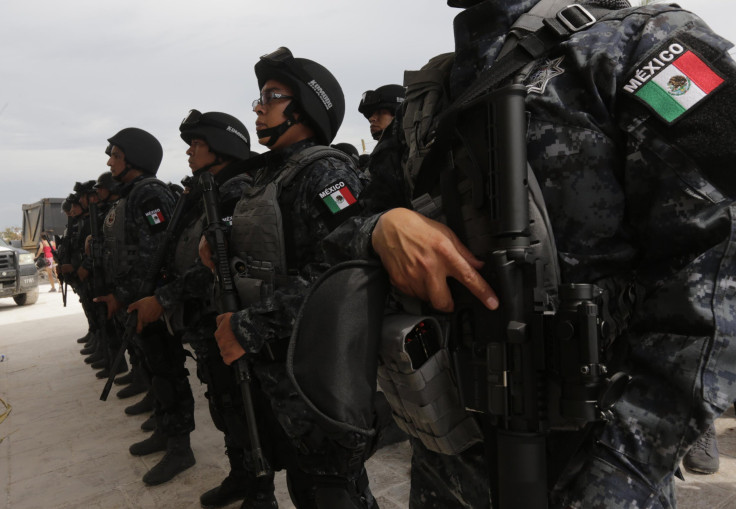Mexican Police Clamp Down On Farmworkers' Protests, Arrest Over 200 In Baja California

More than 200 people were arrested by police in the Mexican border state of Baja California on Wednesday in an attempt to clamp down on protests by farmworkers demanding higher wages. The farmworkers, who had blocked roads, including the transpeninsular highway south of the coastal city of Ensenada, were arrested on charges of vandalism, according to media reports.
The arrests came hours after the office of Governor Franciso Vega de Lamadrid said that they were ready to negotiate with the protesters' representatives. However, a statement released by the office added that state authorities were committed to ensuring the safety of residents and keeping the roads open. The protesters have presented a list of demands, which includes raising wages from the current $8 a day to $20, health benefits, overtime pay, and an end to sexual harassment by their employers, according to media reports.
“The authorities reiterated the call for protesters to focus on dialogue and avoid actions that affect the general population … there will be no tolerance for those who exploit the demonstrations to act outside the law,” the statement said.
Baja California, workers busting out road blockades to protest against their bosses. https://t.co/Jw1EKPYtsI pic.twitter.com/0S26KB4zSs
— ⒶGood Ass Politics☭ (@MexicAnarchist) March 19, 2015Meanwhile, the U.S. Consulate General in Tijuana advised its U.S. citizens traveling to the region to “exercise extreme caution, and to be alert for changing conditions along the road.”
“Availability of services and fuel remain questionable, due to widespread looting during yesterday’s protests. Travelers should be prepared for delays and the possibility of being turned around in the event of further road closures,” the consulate general said, in a statement released Wednesday.
The protests have reportedly affected agricultural production at several large farms in the region, including those in the town of San Quintin -- a major agricultural hub that exports much of its produce to the U.S. Most farmworkers in the area are Mixtec and Triqui Indians from the impoverished southern states of Oaxaca and Chiapas.
© Copyright IBTimes 2024. All rights reserved.






















